The Maryland Zoo in Baltimore is excited to announce the debut of three pink-backed pelicans (Pelecanus rufescens) which are now making their home at Penguin Coastalongside the Zoo’s colony of African penguins and the white-breasted cormorants “Plato, Penelope and Pandora were hatched at Disney’s Animal Kingdom and are seven-months-old,” said Jen Kottyan, avian collection and conservation manager. “We are really thrilled to welcome them to Penguin Coast — they will make a colorful addition to the exhibit.”
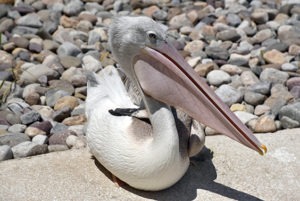
Native to Central and South Africa, as well as Southwest Arabia, the pink-backed pelican sports plumage that is white, grey and pink with dark grey wing tips. Young are similar to adults but browner with only faint pink coloration. “As these three are still juveniles, they have not become ‘pink-backed’ just yet,” said Kottyan. “The feather coloration will change as they mature.” They inhabit coastal and wetlands areas, and will share habitat with penguins and cormorants in the wild.
Pelicans are the heaviest of flying birds, and although pink-backed pelicans are one of the smallest pelican species, they can weigh up to 15 pounds and boast an eight-foot wingspan. Their webbed feet make powerful paddles and they thermoregulate body temperature by spreading their wings when hot. A pelican’s bill is very distinctive. The upper part of the beak has ridges along the inside ending in a sharp tip, as well as small, thick nostrils that look like slits along the upper part of the beak. “One of the most recognizable adaptations of the pelican’s bill is the enormous pouch of skin that is fastened to the lower mandible, called the gular pouch, which can hold up to three gallons of water,” noted Kottyan. “The birds use the pouch as a net and only hold the fish in it long enough to squeeze the water out through the corners of its mouth before swallowing its catch.”
Pink-backed pelicans are noted to feed in the mornings and evenings, and Zoo staff will feed the pelicans on exhibit daily as they become acclimated to the habitat.

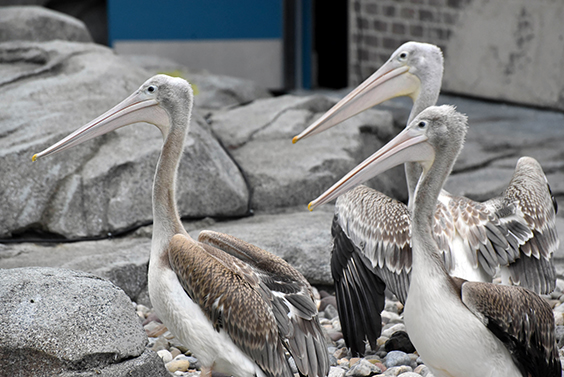
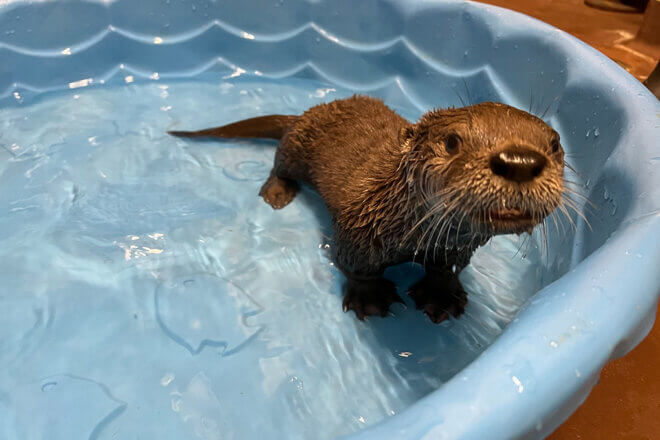
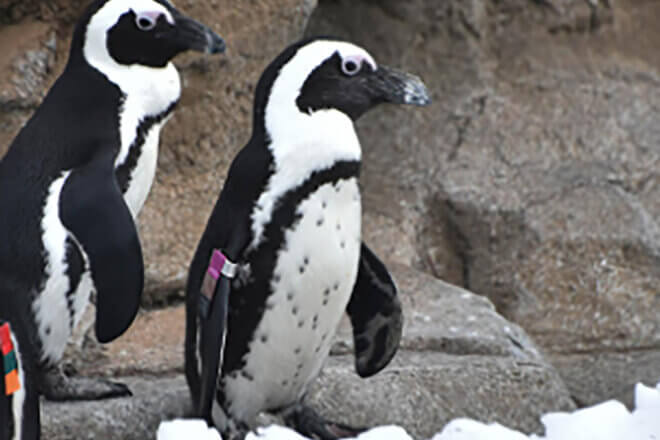
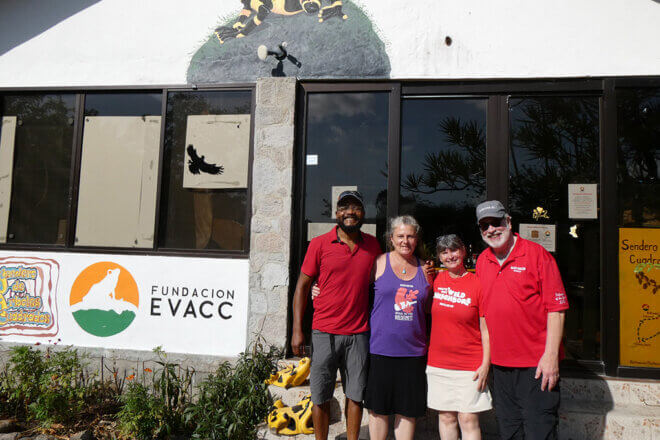

Share this article